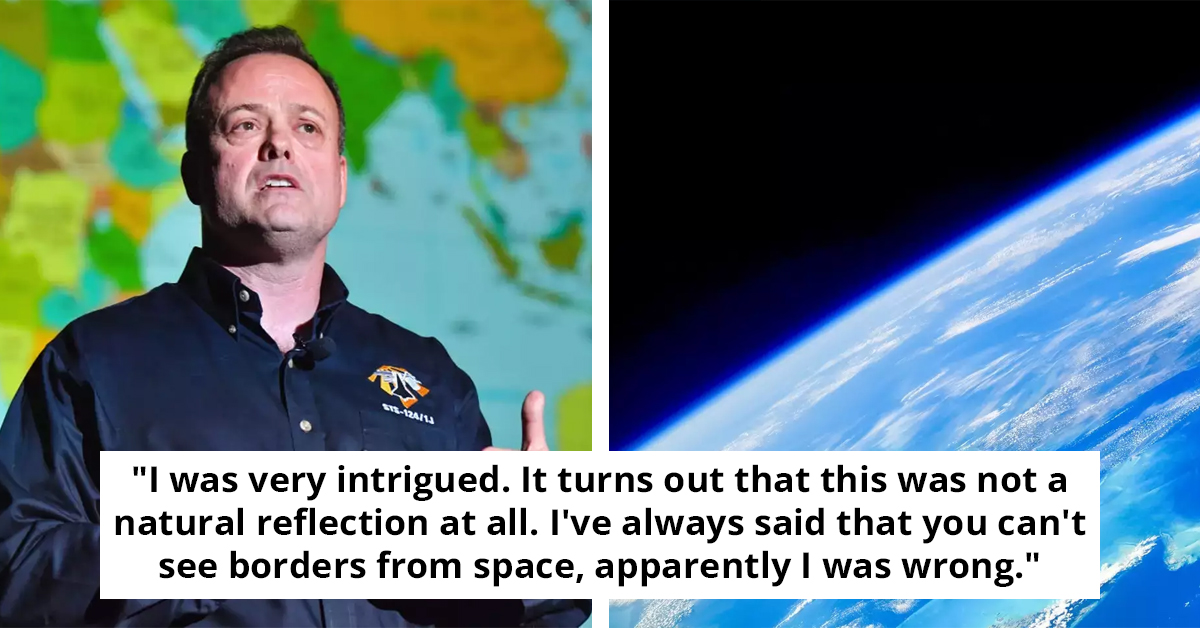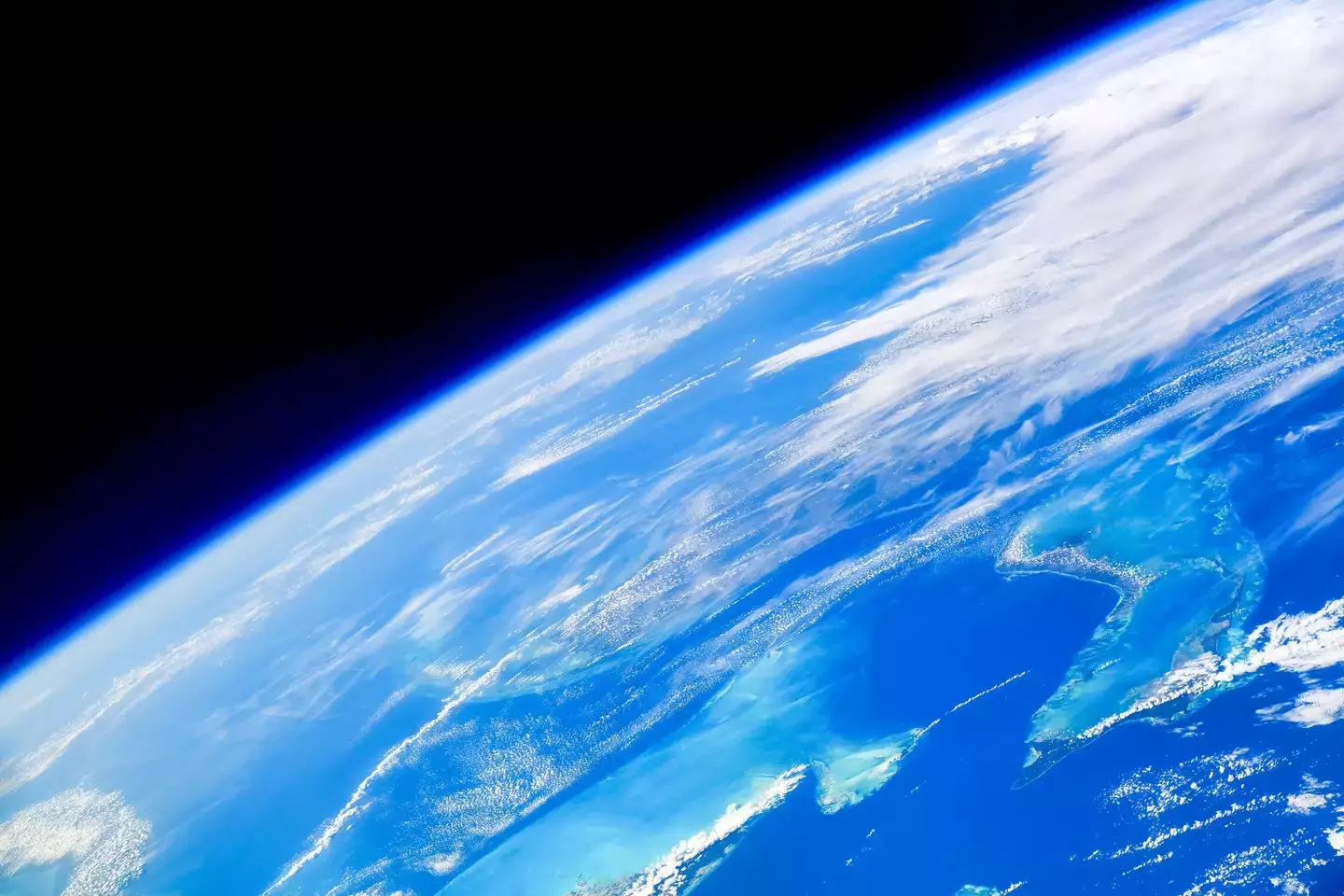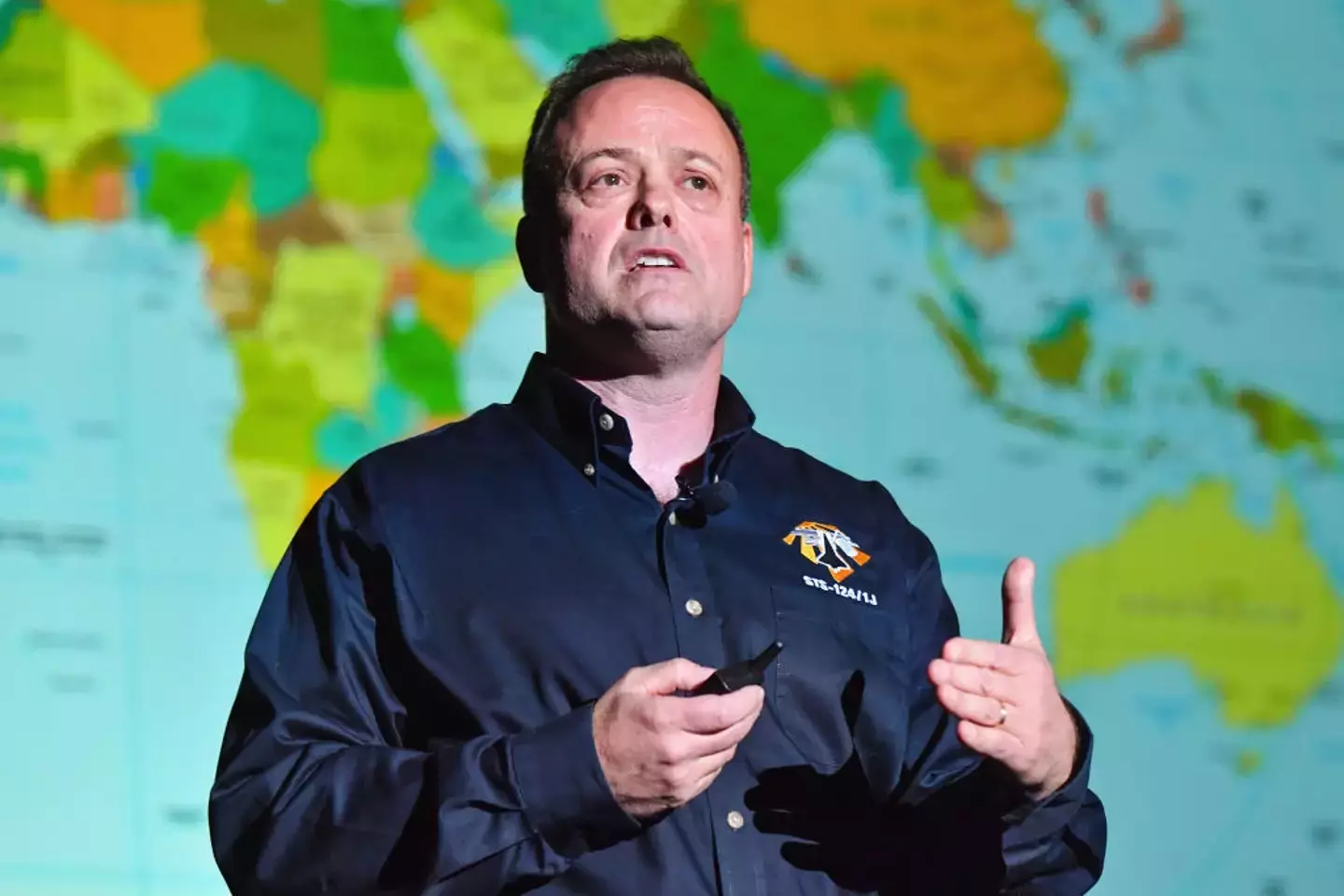
After 178 Days In Space, Astronaut Discovers Structure That Proves We've Been Living A 'Big Lie' All Along
Astronaut Ronald Garan's shocking discovery that challenges how we see our world.

Imagine floating miles above Earth, looking down on our blue planet, seeing the vast oceans, swirling clouds, and glowing city lights. For most, this might be a breathtaking experience, but for Ronald Garan, a former astronaut who spent 178 days in space, it was more than just awe-inspiring—it was life-changing.
Ronald’s time aboard the International Space Station gave him a front-row seat to the wonder of our world. As he orbited the Earth, one particular sight caught his eye: a long line of lights stretching across the Asian continent.
At first, he thought it was a river reflecting the moonlight, but he soon realized it was the man-made border between India and Pakistan. This stark view of separation from such a high vantage point struck a chord deep within him.
Rogan experienced what's known as the 'overview effect'; It's an overwhelming emotional feeling that astronauts often feel when they see the Earth from space. In that moment, he saw the planet as interconnected, whole, without borders or divisions—just one living, breathing organism.
Ronald began to understand how divided our thinking has become. He realized that the lines we draw on maps, the borders that seem so permanent, are just illusions—part of a larger lie that separates us from one another and from the planet itself.
From space, the Earth appears as a single, fragile entity. And Ronald believes this view should remind us of how connected we all are and our shared responsibility to care for our home.
The 'big lie,' as he calls it, is forgetting that we are all in this together, living on a planet that, from up there, has no boundaries.
A breathtaking view of the Earth from outer space
 Getty Stock Image
Getty Stock ImageDuring a TED talk, he shared his experience with the audience;
"I was very intrigued. It turns out that this was not a natural reflection at all. I've always said that you can't see borders from space, apparently I was wrong. The Earth, when viewed from space, almost always looks beautiful and peaceful. But was this an example of man-made changes to the landscape that was clearly visible from space?"
This realization deepened Ronald’s conviction that humanity is trapped in a false narrative. He believes we view the world through a distorted lens in our daily lives.
In a conversation with Big Think, he said,
"We keep trying to deal with issues such as global warming, deforestation, biodiversity loss as stand alone issues when in reality they're just symptoms of the underlying root problem and the problem is, that we don't see ourselves as planetary”.
Ronald is a veteran astronaut with 71 million miles in 2,842 orbits under his belt
 Erika Goldring/Getty Images
Erika Goldring/Getty ImagesHe continued,
"When I looked out of the window of the International Space Station, I saw the paparazzi-like flashes of lightening storms, I saw dancing curtains of auroras that seemed so close it was as if we could reach out and touch them and I saw the unbelievable thinness of our planet's atmosphere. In that moment I was hit by the sobering realization."
It dawned on Ronald that all life on Earth clings to existence beneath a fragile veil. Yet, so many of us remain oblivious to just how connected we are.
"I saw an iridescent biosphere teaming with life, I didn't see an economy, but since our human-made systems treat everything including the very life-support systems of our planet as the [...] subsidiary of the global economy, it's obvious from the vanish point of space that we're living a lie," he added.
Ronald has challenged us to flip our priorities for the greater good of humanity. This would require a shift from the mindset of “economy first, society second, planet last” to “planet first, society second, economy last.”
He believes that by reordering this thinking, we can better protect our home and improve life for everyone.
We can't say for sure if Ronald Garan’s call for a global mindset shift will resonate with everyone, but his message is clear: the way we see the world needs to change.
By putting the planet first and recognizing our interconnectedness, we can move toward a more sustainable and united future.
Jesse







